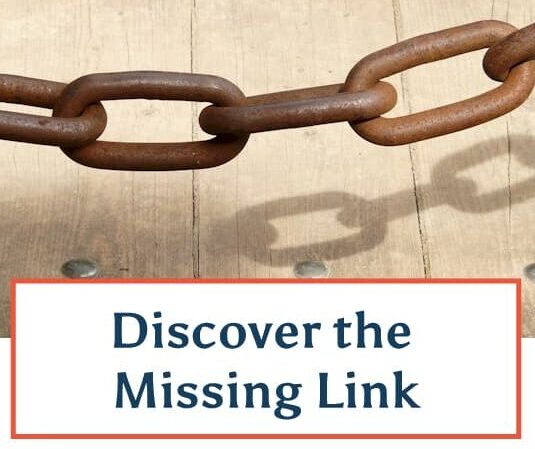When people search for you on Google, does your site show up on page 1 — or on page 20 — of the search engine results?
Since 84% of internet traffic goes through search engines, being ranked highly by search engines will send you a huge number of prospective customers.
Are search engines sending you enough traffic to build your business?
For instance, for the phrase “mastermind group” (which I rank #1), Google sends me 34,000 visitors per year. For the phrase “small business coaching” (which I also rank #1), Google sends me over 10,000 visitors per year. Just those two search phrases alone send 44,000 NEW visitors to my site each year. Well worth the work of SEO!
What if you could do the same for the keywords you want to target?
Optimizing your site to get it ranked highly on the search engines can be a complicated subject. To simplify things, it’s helpful to first understand how search engines add sites to their database. Then we’ll cover some tips that you can put on your own website that will help you to get listed on search engines and get a higher ranking.
The Major Search Players
Let’s start off with the major search engines, the ones that most people use. Google is the most widely used search engine, getting between 55-65% of all searches. Yahoo Search and Microsoft Bing lag far behind with a total of 10-15% each. Bing just recently outranked Yahoo and became the #2 search engine after Google.
While there are thousands of search engines, it’s always a good idea to start with submitting your website to the three largest. Why? Because 95% of all searches go through either Google, Yahoo or Bing.
And now that Yahoo is using Bing’s search engine for their results, there are really only two major players: Google and the combo Yahoo/Bing. As of April 2012, Google processes 66% of all searches, followed by Bing at 15% and Yahoo at 13%.
How Search Engines Read Your Site
Search engines send out crawlers to index your site’s contents. Crawlers follow the links found on your site and enter your site into their search database based on text they find on your pages. This text is either found on your public pages, or the text keywords found in behind-the-scenes meta tags.
The amount of your keywords found on your page, the more weight it has with the search engines and the higher your ranking. But in case you think you can load your page with keywords in order to fool the search engine, think again. Search engines are smart and you can be penalized for keyword stuffing on your website.
How Search Engines Index and Rank Your Site
Search engines use several techniques to determine which category your site belongs in and which keywords people will use to find your site when using the search engine. Google says they use over 200 parameters (“signals” they call them) to categorize and rank a website.
When submitting your site to search engines, they will ask you for your URL (website address). Then they will crawl your site, checking to see which keywords and ideas are most important from your site. And remember, you will be penalized for spamming your keywords and rank LOWER because of it. Also it’s important to note that search engines can not read the text in graphics, so if you are using a graphic-based navigation or have your keywords on a graphic next to your logo, the search engine will not notice it unless you use ALT meta tags.
Some search engines will rank your site based on your title, description and keywords that are supplied behind-the-scenes in special coding called “meta tags.” While not every search engine will read meta tags, it certainly can’t hurt to use them. Again, there are rules: your Title meta tag can’t be more than 100 characters, and your Description meta tag can’t be more than 250 characters. Google only reads the first 60 characters of your Title meta tag, and the first 160 of your Description meta tag. Google says that they don’t read Keyword meta tags at all. Google’s Matt Cutts says that Google definitely reads your Description tag as well. (Matt Cutts also says that Google does NOT use the keyword meta tag to help determine rank in the same video above.)
Submitting Your Site to Search Engines
Once your site is primed and ready for the search engines, then you have to submit it to them.
For Google, you can submit it here:
For Bing, you can submit it here:
Because Yahoo uses Bing’s search engine, you don’t need to submit it separately to Yahoo.
Use Google’s Webmaster Tools and Bing’s Webmaster Tools to see the status of your submission, any errors the search engines found when crawling your site, and some great statistics about the speed of your site.
Preparing your site for submission to search engines can feel like a daunting task. With these tips in mind, you’ll save yourself a lot of time and frustration when it comes time to submitting your site and rank higher in search results.
See you on the Internet!

 The Lifetime Client: Find Them, Love Them, Keep Them
The Lifetime Client: Find Them, Love Them, Keep Them

Everything online revolves around keywords. That means your choice of niche markets, domain names, titles, headlines, article topics, categories, tags and the ever important backlinks. Keyword research is a must so you target the right keywords…main category keywords and all those long tail keywords that make the real difference in search engine traffic.
Very straight to the point information, and easy to read. Being a small business owner I have spent hours each day, teaching myself the techniques for SEO management and each day I learn more. I am in complete agreement with the advise you offer here, in fact if I had known all of these simple things, my website would have been ranked higher faster saving a lot of time and money.